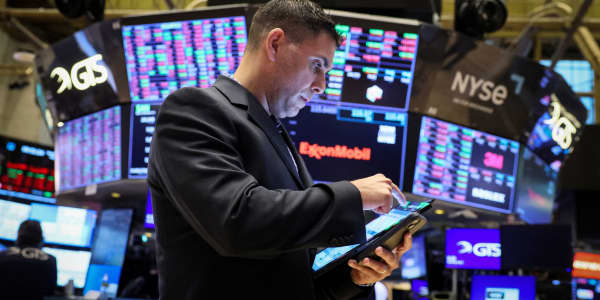No one does stock picking anymore, it's too crowded.
Yogi Berra's paradoxical quip about an unfashionably congested restaurant applies to the traditional Wall Street pursuit of selecting the best stocks.
The rush of cash to passive index funds from active managers who try to beat the broad market is both leading symptom and secondary cause of the pressure on stock picking. A related move to fast-shifting quantitative strategies and the long-term decline in the number of publicly listed stocks are also making for an ever-tougher zero-sum game for investment performance.
Wall Street firms caught in the middle of these movements have been generating pointed research on these trends for institutional clients, as both the "sell side" and the "buy side" see their business models upended by the flow of trillions of dollars in cheap, technology-enabled money that doesn't need their help.
In a report last week, global strategists at Citi noted that there's been nearly a trillion-dollar worldwide swing from active to passive funds in the past 12 months, according to fund tracking firm EPFR. Some $542 billion entered index funds while $442 billion departed active portfolios.
Long bull markets always tend to show a surge in money willing simply to match the market return at low cost. Yet most investors and advisors also assume we're in a lower-return world for years to come, which has led to a "profound reassessment of the fee that savers are willing to pay managers to invest their capital in equity markets," says Citi.
With the average expense ratio of a U.S. equity fund at 0.84 percent a year versus 0.11 percent for index funds, the flow of cost-sensitive dollars toward indexes and pressure on active-fund fees should only continue.





